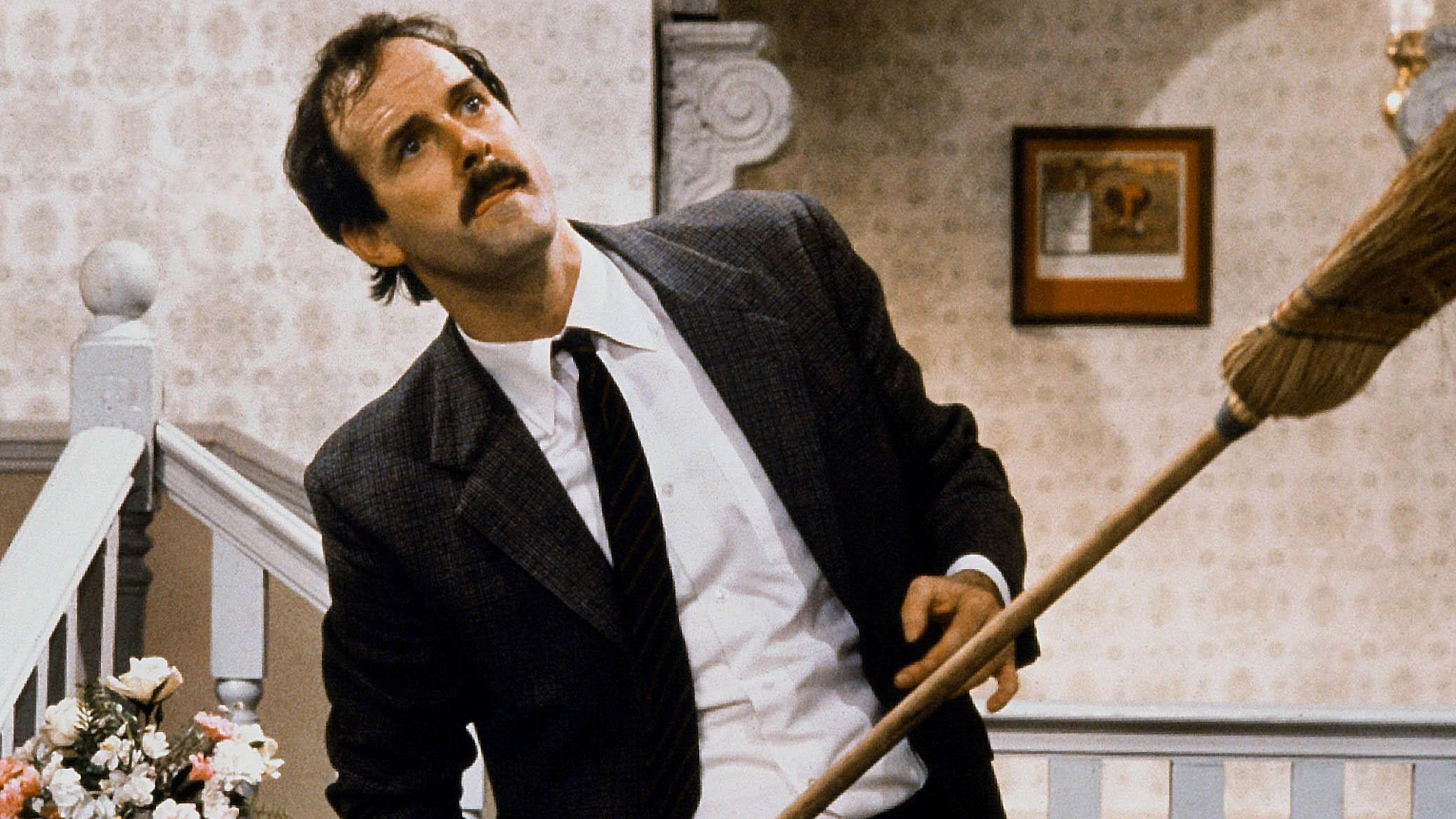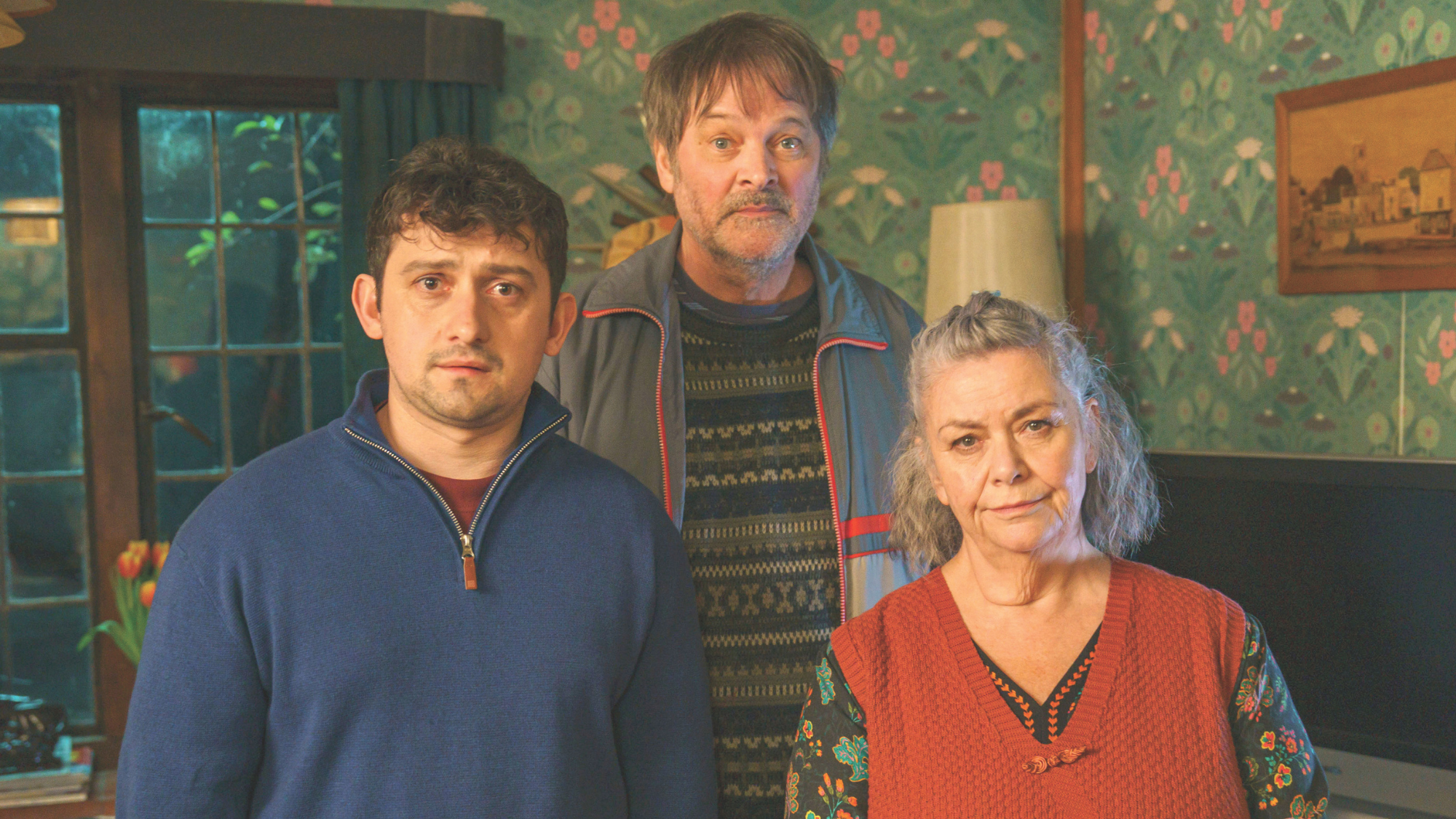Is the great British sitcom dying out?
The 'watercooler' show may be on the wane, but there's life in the genre while we still 'crave the classics'

A free daily email with the biggest news stories of the day – and the best features from TheWeek.com
You are now subscribed
Your newsletter sign-up was successful
The BBC's director of comedy has called on the television industry to help "save our sitcoms".
In a keynote industry speech at the BBC Comedy Festival last week, Jon Petrie challenged the sector to protect homegrown storytelling and create the next generation of television classics, reported Chortle.
"The sitcom isn't dead", he said, but it "needs a couple of Berocca" and a "black Americano with two sugars".
The Week
Escape your echo chamber. Get the facts behind the news, plus analysis from multiple perspectives.

Sign up for The Week's Free Newsletters
From our morning news briefing to a weekly Good News Newsletter, get the best of The Week delivered directly to your inbox.
From our morning news briefing to a weekly Good News Newsletter, get the best of The Week delivered directly to your inbox.
'One foot in the grave'
The death of the traditional sitcom would be "no laughing matter", said a leading article in The Times. However tempting it may be to "attribute the decline of sitcoms to a rise in political sensitivity on the part of audiences", the problem is "partly one of supply rather than demand".
Petrie also criticised production companies for failing to pitch the kind of "big laugh" sitcoms that he said the BBC wants to commission. This is partly due to the "present vogue among aspiring writers" to create "thematically challenging, eccentric comedy-dramas" like "Fleabag", said the paper, which are "easier to sell to global streaming services".
It's "not as though British writers aren't coming up with good sitcoms", said the Daily Mail – just look at the recent success of "People Just Do Nothing", "Ghosts", "Stath Lets Flats" and "Derry Girls". But those shows have been "sunsetted" because "viewers' watching habits have changed in the streaming era".
The genre has had "one foot in the grave" for a while, wrote Ian Hyland in The Mirror in 2019. Some would argue that networks have become "risk averse", because "why pump money into a sitcom that might not work when panel shows and quiz shows are cheaper"?
A free daily email with the biggest news stories of the day – and the best features from TheWeek.com
Speaking to The Times last year, comedian Lee Mack blamed "snobs" for the sitcom's decline. "Middle-class commissioners and journalists", he said, simply "don’t understand the 'working-class art' of the sitcom beloved by the mainstream".
The studio sitcom "really is an art – a working-class art", he added. "If we're not careful it's going to die."
'The last laugh'
But "how on earth can sitcom be dead when we live in an age of constant new content, endless streaming and easily accessible reruns of old and new material?" asked comedian Viv Groskop in The Guardian.
What has "actually been consigned to the history bin", she added, is the type of "watercooler British sitcom" that "everyone watches and draws their references from". It has been replaced by "phenomena with dark comedic undertones, viral reach and 'a beginning and an end'" – "Baby Reindeer" and "Saltburn", for example.
And "we are still making great situational comedies", said Groskop. Look at the popularity of "Ted Lasso", "Fleabag", "Catastrophe", "Motherland" and the upcoming finale of "Gavin & Stacey".
People who say "sitcom is dead and that nothing is funny any more" are "simply expressing the fact that they miss the days of four channels, less choice, lowest common denominator" and "commissioners who targeted a certain, easily defined demographic".
At a "time when we need to laugh more", it's a shame to see that "this cornerstone of our culture" is "under threat", wrote Judith Woods in The Telegraph. But the British sitcom "will never die when we still crave the classics".
The "good news" is that both terrestrial and streaming platform producers are now "desperate" for "full-fat sitcoms with belly laughs and jokes", she said. So, if comedy writers dare to risk "courting the broad appeal of sitcom", said The Times, "they may have the last laugh".
Chas Newkey-Burden has been part of The Week Digital team for more than a decade and a journalist for 25 years, starting out on the irreverent football weekly 90 Minutes, before moving to lifestyle magazines Loaded and Attitude. He was a columnist for The Big Issue and landed a world exclusive with David Beckham that became the weekly magazine’s bestselling issue. He now writes regularly for The Guardian, The Telegraph, The Independent, Metro, FourFourTwo and the i new site. He is also the author of a number of non-fiction books.
-
 How to Get to Heaven from Belfast: a ‘highly entertaining ride’
How to Get to Heaven from Belfast: a ‘highly entertaining ride’The Week Recommends Mystery-comedy from the creator of Derry Girls should be ‘your new binge-watch’
-
 The 8 best TV shows of the 1960s
The 8 best TV shows of the 1960sThe standout shows of this decade take viewers from outer space to the Wild West
-
 Microdramas are booming
Microdramas are boomingUnder the radar Scroll to watch a whole movie
-
 How to Get to Heaven from Belfast: a ‘highly entertaining ride’
How to Get to Heaven from Belfast: a ‘highly entertaining ride’The Week Recommends Mystery-comedy from the creator of Derry Girls should be ‘your new binge-watch’
-
 February TV brings the debut of an adult animated series, the latest batch of ‘Bridgerton’ and the return of an aughts sitcom
February TV brings the debut of an adult animated series, the latest batch of ‘Bridgerton’ and the return of an aughts sitcomthe week recommends An animated lawyers show, a post-apocalyptic family reunion and a revival of a hospital comedy classic
-
 Heated Rivalry, Bridgerton and why sex still sells on TV
Heated Rivalry, Bridgerton and why sex still sells on TVTalking Point Gen Z – often stereotyped as prudish and puritanical – are attracted to authenticity
-
 The 8 best hospital dramas of all time
The 8 best hospital dramas of all timethe week recommends From wartime period pieces to of-the-moment procedurals, audiences never tire of watching doctors and nurses do their lifesaving thing
-
 Can You Keep a Secret? Dawn French’s new comedy is a ‘surprising treat’
Can You Keep a Secret? Dawn French’s new comedy is a ‘surprising treat’The Week Recommends Warm, funny show about an insurance scam is ‘beautifully performed’
-
 Scoundrels, spies and squires in January TV
Scoundrels, spies and squires in January TVthe week recommends This month’s new releases include ‘The Pitt,’ ‘Industry,’ ‘Ponies’ and ‘A Knight of the Seven Kingdoms’
-
 Golden Globes affirm ‘One Battle,’ boost ‘Hamnet’
Golden Globes affirm ‘One Battle,’ boost ‘Hamnet’Speed Read Comedian Nikki Glaser hosted the ceremony
-
 Let these comedians help you laugh your way through winter
Let these comedians help you laugh your way through winterThe Week Recommends Get some laughs from Nate Bargatze, Josh Johnson and more